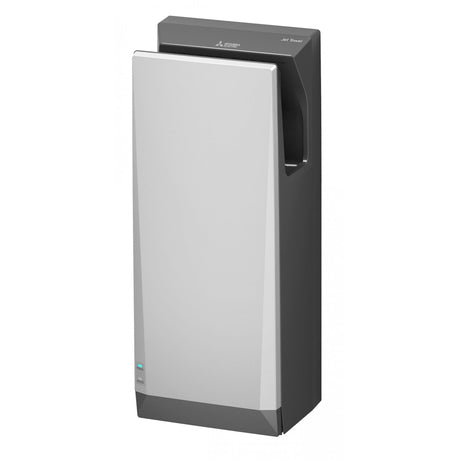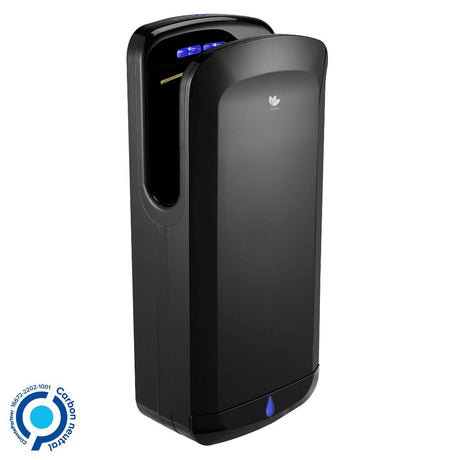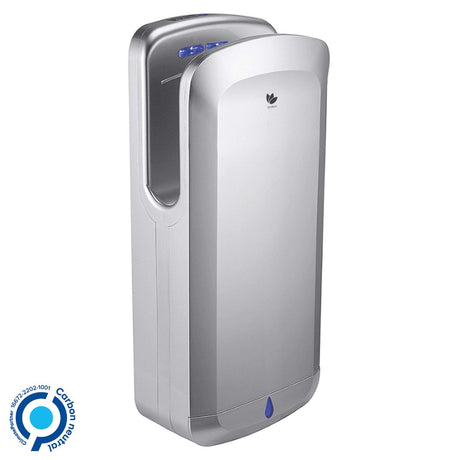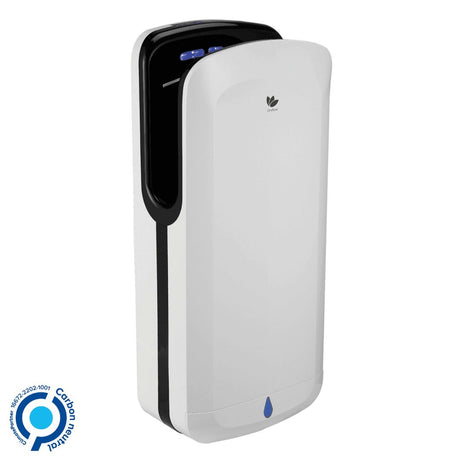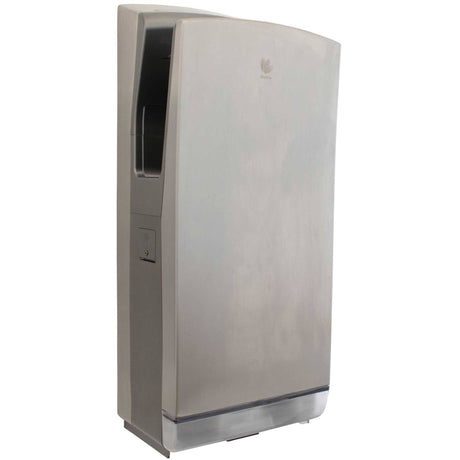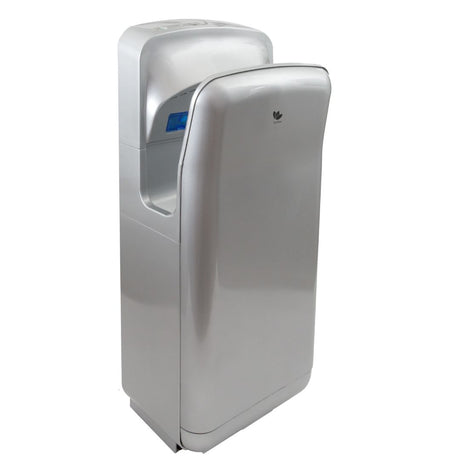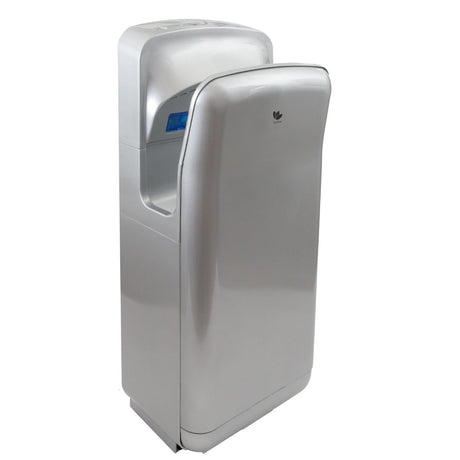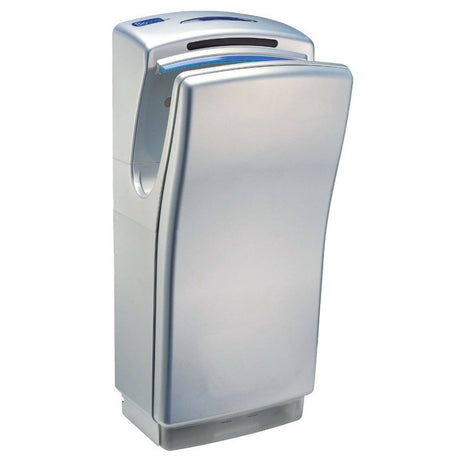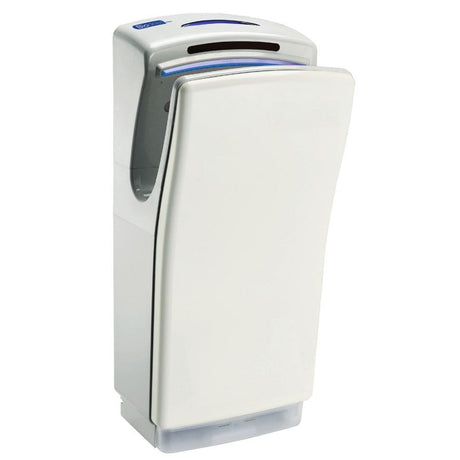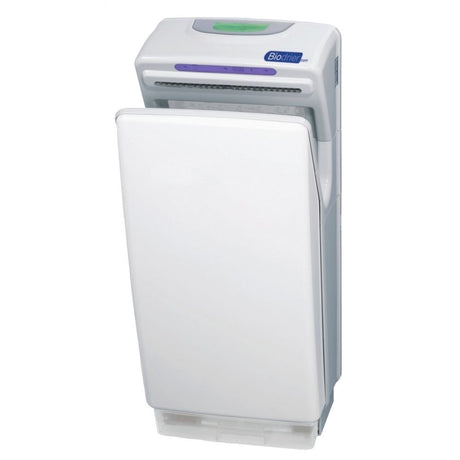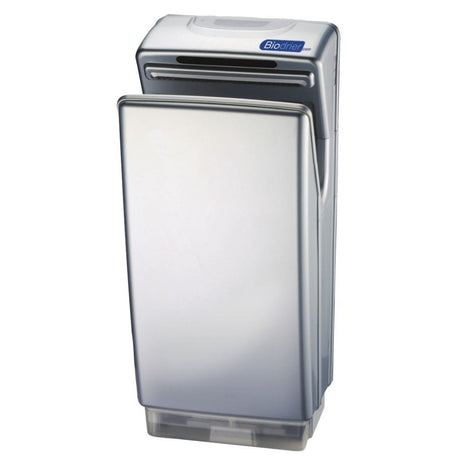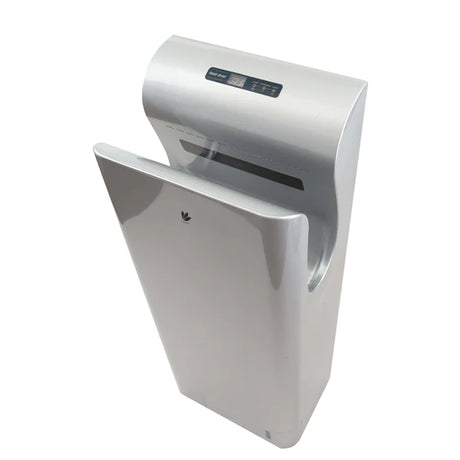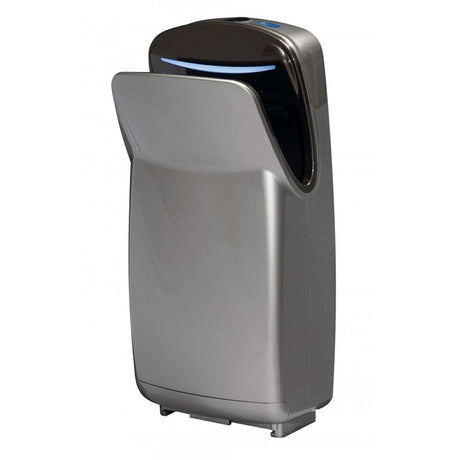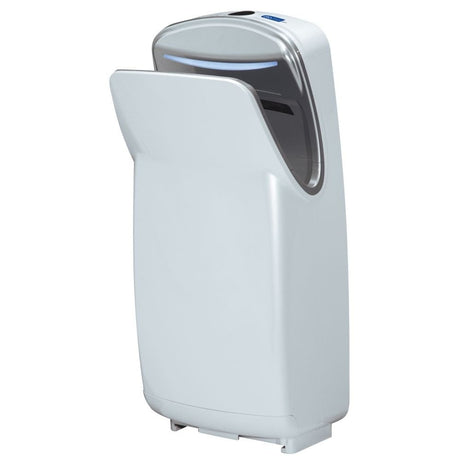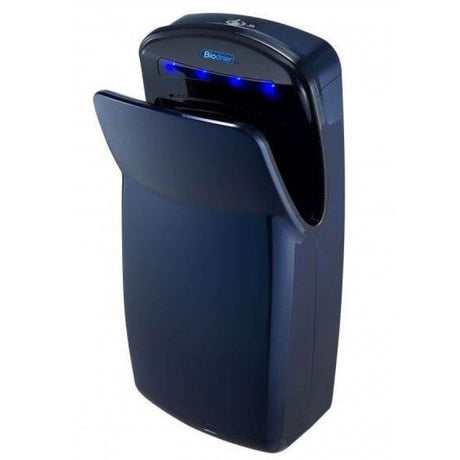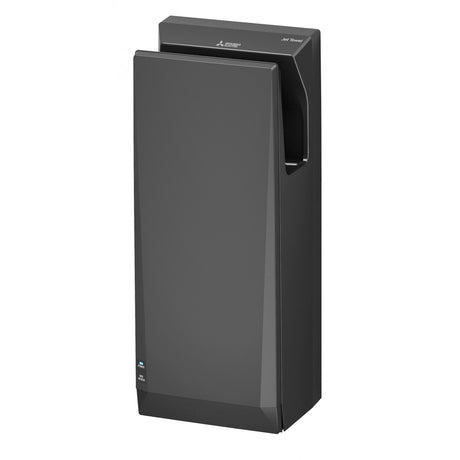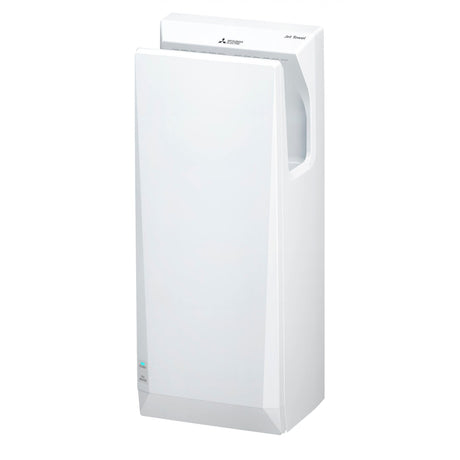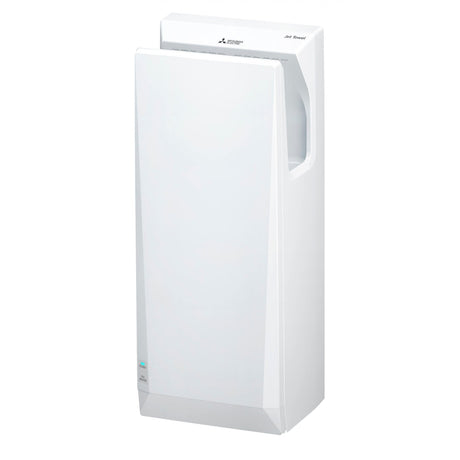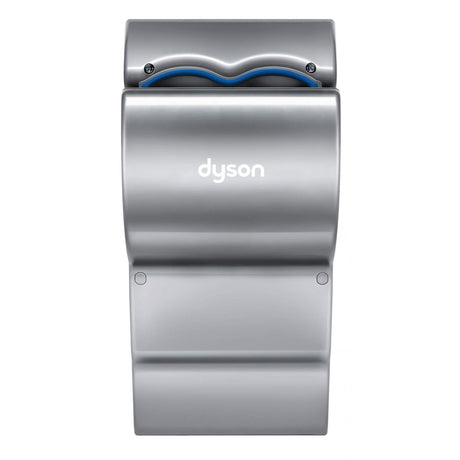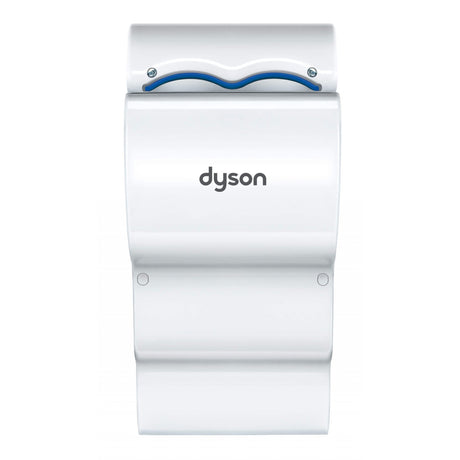How do hands-in hand dryers work?
Also known as ‘blade dryers' or ‘jet dryers’, these hand dryers work by forcing air through a single or series of thin air outlets, usually from both sides, creating a powerful ‘blade’ of air. They are called hands-in hand dryers as hands are placed inside the unit rather than underneath. The water is then collected in a trough and usually drained into a water tank. Mitsubishi, Biodrier, Mediclinics, and Dryflow models all have water catchment trays with anti-microbial plastics and are designed to prevent water splash down the side.
What are the benefits of hands-in hand dryers?
Advantages
- Blade hand dryers dry consistently faster than hands under-models
- Often create less noise as they have more anti-vibration technology built-in
- Water is collected into a tray meaning dry floors and walls (on most models)
Disadvantages
- More expensive
- Larger footprint makes them harder to install, clean and maintain
- Powering dual motors means they have higher energy consumption than most single airflow models
- Water needs emptying regularly
- Internal cleaning necessary
HEPA filters in air blade hand dryers
Air Blade hand dryers were the first designs to integrate a HEPA filter. The air inlet pulls the airflow across a HEPA filter removing 99.99% of airborne particles and removing dust, bacteria, and viruses. All our blade hand dryers now include either a HEPA filter or a high-quality anti-bacterial filter. The Stealthforce and Jet force junior include UV-C lights to sterilize particles captured on the filter.
Are hands-in hand dryers expensive?
They are more expensive than most ‘traditional’ because there is more material and they often need more powerful motors to create the airflow to dry from both sides of the hands. Whether they are worth the expense is case-dependent, and the difference in price can be minimal. Our entry-level option blade hand dryer is the Jet force Junior, at £269+vat. The same ‘level’ of traditional high-speed hand dryer the Slimforce which is approximately £99.99+vat. The running costs of blade dryers are negligible. If price is the deciding factor, then you may benefit from looking at our low-cost hand dryer section.
Environmental impact of hands-in hand dryers
In terms of energy consumption while being used, hands-in hand dryers are comparable to traditional hand dryers. Where they differ however is when looking at the complete end-to-end process, including manufacturing and shipping. When considering those factors, a jet dryer is likely to have at least twice the carbon emissions compared to a traditional dryer. Comparing the Slimforce (traditional) with the Jet Force Junior (hands in), the Slimforce creates 18 kg/co2 in its creation and end-of-life disposal, and the Jet Force 95kg/co2.
However, it is important to note that both will save a huge amount of emissions vs disposable, single-use paper towels: somewhere in the region of 95% per dry. We are keen to point out that reducing material use is a key part of the global environmental strategy and we would urge you to consider products with less material where possible. You can learn more about the impact of paper towels here.
Our top recommended hands-in hand dryers
- Quietist and longest lasting - the Mitsubishi Jet Towel Slim which has the best water capture, best reliability, and uses the least energy. A good alternative is the Dyson Airblade ab14, but you will need to add the water collection tray in high traffic areas or your cleaners will need to be constantly mopping the floors.
- The Steelforce from Dryflow has a minimal design and brushed satin finish alongside boasting some pretty impressive tech specs.
- Best economy option - the Jet force Junior looks great and performs really well, it just won’t last as long under heavy use as some more costly options. For high-traffic areas the Jet force Pro will cope with the demands but you will take a margin hit on dry time (15 secs as opposed to 10 secs).
Not sure whether blade hand dryers are the right option for you? Please call one of our experts on 0114 3540047.
 Find out more
Find out more Help me choose
Help me choose




